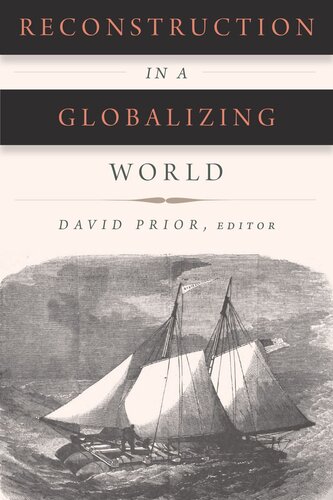

Most ebook files are in PDF format, so you can easily read them using various software such as Foxit Reader or directly on the Google Chrome browser.
Some ebook files are released by publishers in other formats such as .awz, .mobi, .epub, .fb2, etc. You may need to install specific software to read these formats on mobile/PC, such as Calibre.
Please read the tutorial at this link: https://ebookbell.com/faq
We offer FREE conversion to the popular formats you request; however, this may take some time. Therefore, right after payment, please email us, and we will try to provide the service as quickly as possible.
For some exceptional file formats or broken links (if any), please refrain from opening any disputes. Instead, email us first, and we will try to assist within a maximum of 6 hours.
EbookBell Team

5.0
80 reviewsAs one of the most complexly divisive periods in American history, Reconstruction has been the subject of a rich scholarship. Historians have studied the period’s racial views, political maneuverings, divisions between labor and capital, debates about woman suffrage, and of course its struggle between freed slaves and their former masters. Yet, on each of these fronts scholarship has attended overwhelmingly to the eastern United States, especially the South, thereby neglecting important transnational linkages. This volume, the first of its kind, will examine Reconstruction’s global connections and contexts in ways that, while honoring the field’s accomplishments, move it beyond its southern focus.
The volume will bring together prominent and emerging scholars to showcase the deepening interplay between scholarships on Reconstruction and on America’s place in world history.
Through these essays, Reconstruction in a Globalizing World will engage two dynamic fields of study to the benefit of them both. By demonstrating that the South and the eastern United States were connected to other parts of the globe in complex and important ways, the volume will challenge scholars of Reconstruction to look outwards. Likewise, examining these same connections will compel transnationally-minded scholars to reconsider Reconstruction as a pivotal era in the shaping of the United States’ relations with the rest of the world.